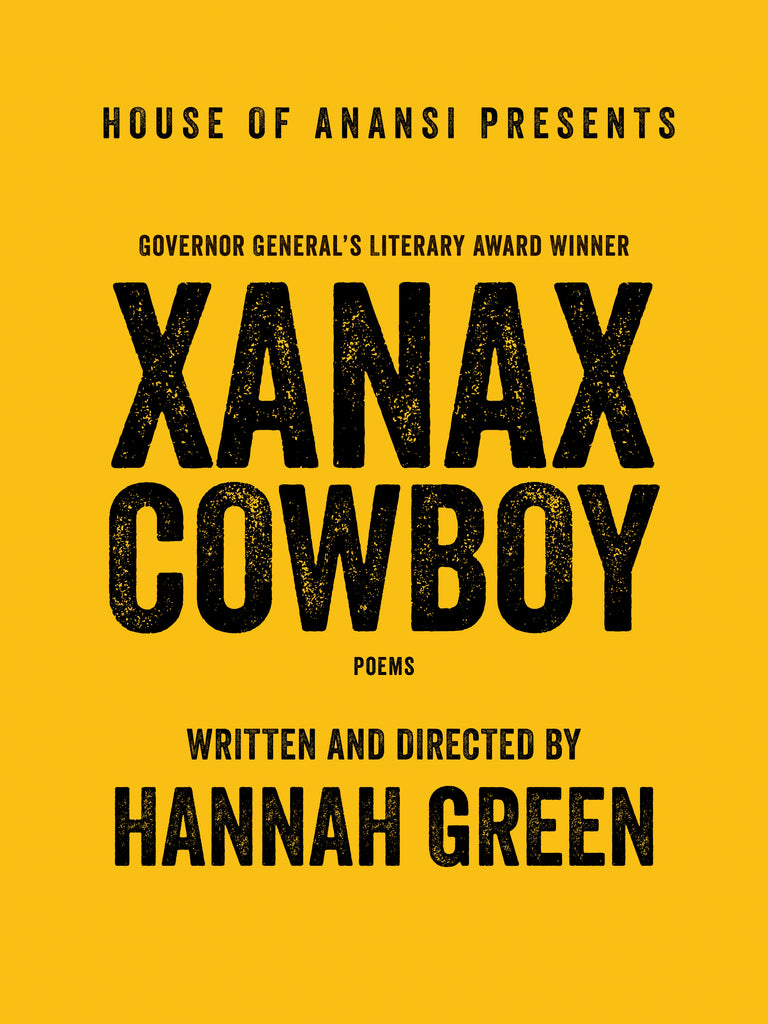Stop! Look! Listen! Noah Sparrow's Reading Recommendation
 Hannah Green’s Xanax Cowboy is a long poem—a total of 128 pages—that interrogates
Hannah Green’s Xanax Cowboy is a long poem—a total of 128 pages—that interrogates Hannah Green’s Xanax Cowboy is a long poem—a total of 128 pages—that interrogates
Hannah Green’s Xanax Cowboy is a long poem—a total of 128 pages—that interrogatesThis is my year of reading short story collections, and this book exploded my understanding of what you could do with the “novel in short stories” form. The dust jacket describes it as a novel, and it follows a single protagonist, named Nina. But many of the stories that comprise it were published separately and several made it into collections like The Journey Prize anthology, and that’s because they make such powerful use of the condensed tension of the short story.
When I arrived at my designated campsite on my first camping trip, I encountered a black bear. It was bent over a picnic table two camp sites over, its snout riffling through crumbs and crusts on abandoned paper plates. My childhood friend, a bear expert who was working at Algonquin Park that summer, was shocked. She said she hadn’t seen bears roaming this close to the campsites all summer. She assured me that the likelihood of it coming back was slim, but I wasn’t convinced.
Nucleus, a poetry collection by Svetlana Ischenko, published by Ronsdale Press.
Nucleus takes readers through a journey that traverses space (Ukraine to Canada) and language (Ukrainian to English) to arrive at an arresting and beautiful synthesis.
A Coffin full of Books
Bohumil Hrabal’s ninety-eight page novel Too Loud a Solitude opens with the following two sentences: “For thirty-five years now I’ve been in wastepaper, and it’s my love story. For thirty-five years I’ve been compacting wastepaper and books…”
Is a poet’s life the support for poetry, or is poetry a support for the poet’s life? As much as Santoka Tenada, a mendicant Zen priest and haiku poet of the twentieth century, tried to live a good life according to the Tao, his inveterate love of sake and general need to carouse left him with poetry as the only means of perfecting what he was unable to perfect in life: mainly, the thing in us that wants to be better, the thing which, for a host of competing reasons, we are usually unable to achieve in life.
I’ve read a lot of great and varied books this year so far, everything from queer romance noir fantasies to nonfiction about moss, but the work that has stuck with me the most is You Could Make This Place Beautiful by Maggie Smith.
Don Quixote!
I have already read it 28 times, in English, French (once), and Spanish. Every time I read it, I dig a little bit deeper and discover a little bit more about the art of narrative and the craft of fiction.
George Elliott Clarke has carved a name for himself in Canada’s poetry landscape as a talented modernist paradoxically charged with verbosity. The richness of his language, the energy and directness of his address, and his exploration of “big” themes (racism, love, poverty) have garnered him understandable praise. In his best work, the focus of language and theme creates an undeniable force.